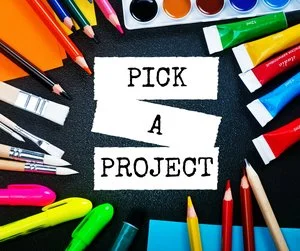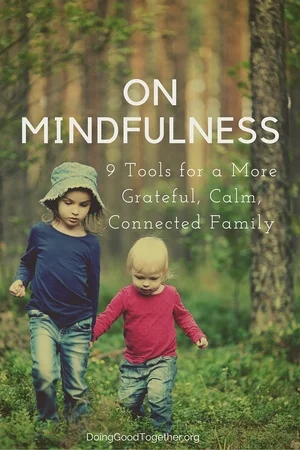A PARENT’S WISHLIST FOR RAISING CARING KIDS
To hear parents talk, there are more than books and baubles on their wishlist. Most of us wish for a kinder world. At Doing Good Together™, we believe that this begins with children. We believe that raising children to care about others and the common good is an imperative -- and the most likely way to heal our planet in the years to come. With this in mind, we offer a few tips to satisfy everyone's wishes for happier children, more connected families, and a better world.
–Jenny Friedman, Executive Director
KIND KIDS ALL YEAR LONG
Make a Difference...
If you are wishing for a new way to think about compassion and caring in your family this holiday season and the year ahead, here are some of our favorite tips.
I wish my kids would continue "giving back" into adulthood. They probably will, since a family's habit of charitable giving and volunteering is often passed on from generation to generation. If these aren't a habit in your family yet, the holidays are a great time to start.
Try this: Pick out one of our fun at-home service projects; write a letter or gratitude to your mail carrier or garbage collector; visit a local nursing hometo pass out homemade treats (call first!), or drop off canned goods at your local food pantry. Remember, giving back doesn't have to be hard or time consuming!
I wish kindness could actually be taught. Surprisingly, it can. Researchers at the University of Wisconsin-Madison showed that kindness classes work. Preschoolers who took part in a 12-week "kindness curriculum," which included lessons on caring and mindfulness, showed more empathy and kindness and a greater ability to calm themselves down.
Try this: At home, you can build your child's capacity for caring, compassion and empathy by: 1) helping them understand the world from someone else's perspective, 2) practicing mindfulness with them, and 3) performing simple acts of kindness together.
I wish my kids would be generous without prodding. A good tip is to let kids see the impact of their generous actions. With very young children, try to make the connection immediate and tangible.
Try this: Make sure your "giving back" opportunities include those where children can easily see the connection between their kind acts and the difference they made -- things like cleaning up a park or delivering handmade cards to a veteran's home.
I wish my kids knew that success is more than A's. We can't stress this enough. Harvard researchers tell us that the messages we're sending kids about the importance of achievement and personal happiness are drowning out our words about kindness and caring. And when kids don't sense that caring is a priority, cheating and bullying are much more likely.
Try this: Be explicit about what you value. "It matters more to me that you're kind, caring and honest, than whether you get an A on your math test."
I wish I didn't always have to reward my child's good deeds. Actually, kids are more likely to be kind when you don't. In fact, incentivizing kind behavior in young children doesn't make it more common. Incentives can send the message that kindness is something you only do for a reward.
Try this: When you see your child being generous or thoughtful, simply use praise. Focus the praise on their character: "You're the kind of person who helps others."
CHANGE-MAKING CONVERSATIONS
Talk About It...
We've seen time and again that by verbalizing our experiences, kind acts and everyday interactions, we help children develop strong skills in compassion and problem solving.
Chat about your charitable giving and volunteering. Studies show that when parents open up with their kids about who they're helping and why, their kids are even more likely to follow in their footsteps.
Try this: Don't just practice what you preach, but preach what you practice. Tell your children about your donations, your daily gestures of kindness, your activism -- and explain why these are important to you.
Use problem-solving and words to discipline. Research shows that this can lead to kinder, better-behaved kids.
Try this: Talk to your children about why they misbehaved, then work together to come up with strategies to do better moving forward. The goal is to understand the problem and get to the root of it -- not to punish.
Talk about feelings, and compassion will follow. When parents talk to their children about emotions, children are more likely to recognize those emotions in other people and empathize with them. This can lead children to want to help out and share.
Try this: Be an emotion coach. First, help your child name their feelings. Then, together, work out how to deal with them when they become overwhelming.
LEARN ABOUT IT
The books on our Read with Empathy lists will get your family talking about important values, issues and concerns. These books make great gifts, too!
INSPIRATION
"Instead of saying 'I don't have time,' try saying 'It's not a priority' and see how that feels."
– Laura Vanderkam, American writer








